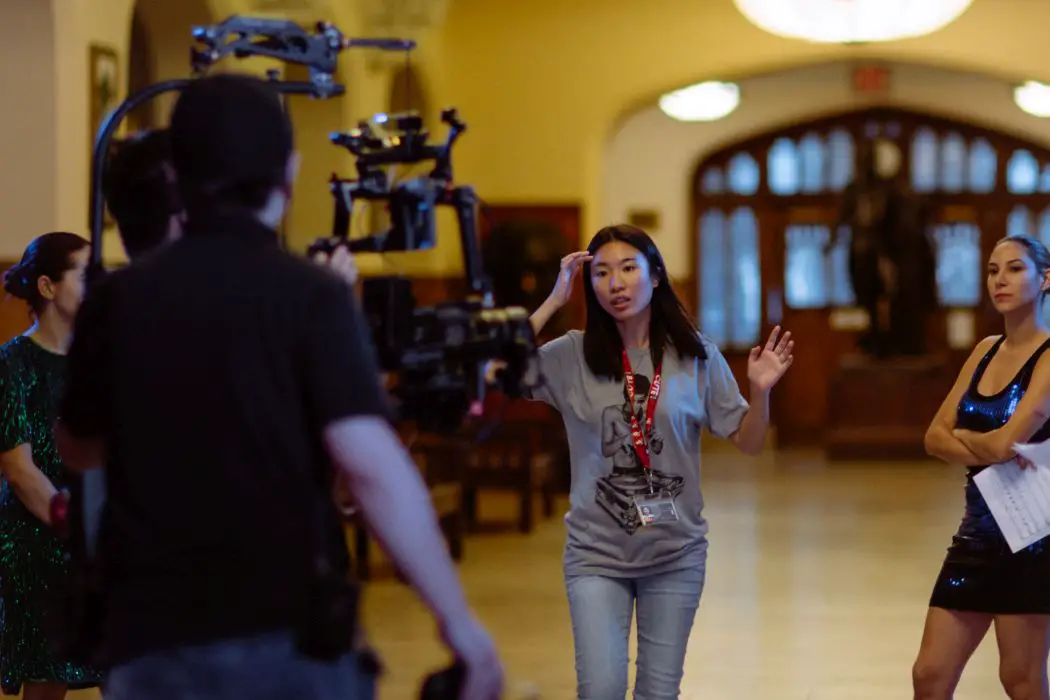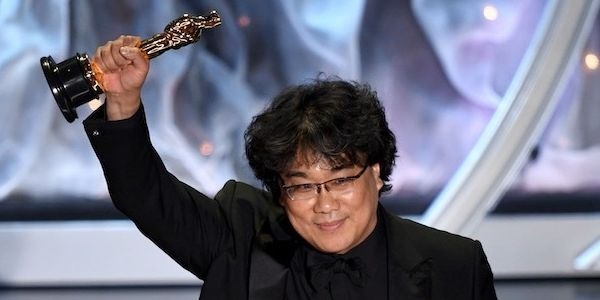We Need More Asian Female Directors In Cinema

Xiaoyu Yang is an award-winning, New York-based filmmaker. She earned…
Gender diversity in film has become a major public issue in recent years with Hollywood celebrities leading the charge for fairer pay and representation.
The campaign to improve female representation in film has shown small but positive signs. According to the USC Annenberg Inclusion Initiative, in 2019, 10.6% of the top 100 grossing films of the year were from Female directors with the Center for the study of Women in Television & Film finding that 37% of 2019’s lead characters were women. It’s a development worth noting.
However, the statistics regarding opportunities for Asian women paint a dimmer picture. Out of the last 1,300 major releases, only 1% of them were directed by women from underrepresented ethnic groups. And out of 2019’s lead female characters, only 7% were from an Asian background – this isn’t a fair reflection of the talent within the Asian community. With the established success of the Chinese, Korean, and Japanese film industries, there’s no reason for negative perceptions to affect the working opportunities of Asian filmmakers in the West.
The last year alone has seen Asian film directors take center stage. Bong Joon-ho’s Parasite has captured the world’s attention by becoming the first foreign-language film to win Best Picture at the Oscars. Cathy Yan became the very first woman of Asian descent to direct a major superhero feature, Birds of Prey. And Lulu Wang has seen great success with her film The Farewell. These recent successes have shined a spotlight on the talent and potential of Asian filmmakers. The Asian film industry is self-sufficient and doesn’t rely on Hollywood blockbusters to break big box office numbers – China’s top-grossing films in 2019 were Chinese-language productions.

But will this lead to international audiences taking an active interest in Asian directors and writers, particularly those that are female?
Beliefs about a person’s background can lead to assumptions about their interests and skills. In many ways this is understandable – I grew up in a culture far removed from Hollywood and the Broadway musical tradition. When I decided to move from China to study an MFA program in filmmaking at the City College of New York and pursue my ambitions in cinema, it was difficult to work in a milieu so different from my own heritage. But these preconceived notions – based on a person’s gender or ethnicity – can stifle talent and put doubt in the minds of filmmakers looking to pursue projects outside of their own traditions.
As a female director from China, my dream to create a musical short-film about Broadway received similar apprehensions. My own screenwriting professor, who is a renowned filmmaker, said to me, ‘don’t even think about making a musical for your thesis film.’ I even found difficulty in casting the lead role – my classmates didn’t have faith in my project’s success. It’s clear to me that reactions like this only serve to cement stereotypical expectations of Asian filmmakers.

But I see this as an opportunity – the lack of enthusiasm for my vision has only spurred me on to work harder. I want to use my film as a platform to voice the incredible work ethic, talent, and culture of Asian women, all within the context of quintessential Western cinema. I think it’s important to overcome these issues positively and prove that Asian and migrant women can make an impact by doing. My short, Another Wonderful Day in Paradise, tackles some of these issues head-on, both in terms of its narrative and the people involved in its production.
The film follows an aspiring musical actress from a migrant background as she juggles the realities of inner-city life with her dreams of leading on Broadway. The story mirrors that of my own – and many of the crew’s – experiences attempting to balance two lives. A large number of the crew members were from countries such as Korea and Thailand and had similar aspirations and dreams to make a musical too. The illustrator, Amber Ma, and Composer Shuo-an Chen, were also of Asian descent and through working with my cinematographer, Lee Crynma Jang, I was able to incorporate influences from the great Chinese filmmaker, Wong Kar-Wai. In my own way, I’m trying to bridge the East and West through some of their greatest cultural traditions.
Meeting prejudice directly with a positive message that celebrates all cultures is a great way to change things for the better. I’m hoping that I can inspire more Asian and migrant female directors that are just starting out to keep going, not lose faith, and achieve their ambitions.
Does content like this matter to you?
Become a Member and support film journalism. Unlock access to all of Film Inquiry`s great articles. Join a community of like-minded readers who are passionate about cinema - get access to our private members Network, give back to independent filmmakers, and more.
Xiaoyu Yang is an award-winning, New York-based filmmaker. She earned her MFA degree in filmmaking at City College of New York. She has been creating independent films in New York City since 2013, and most of her works are focusing on comprehensive imageries of blended cultures, and the attribute of feminism nowadays. In 2015, her first feature-length documentary, A Lifelong Journey, which narratively documents a renowned Chinese artist, Dan Hsu, brought her 7 awards, including best feature (student), best director, and best female filmmaker at Hollywood International Independent Documentary Festival. In 2016, Yang was honored by BAFTA as a Discovery Communications Scholar and became a member of BAFTA New York alumni a year after.













